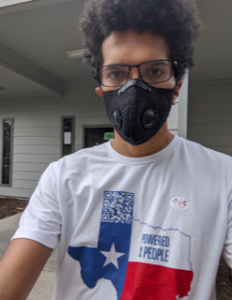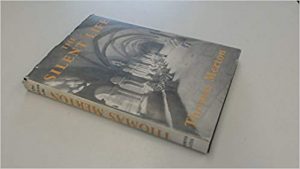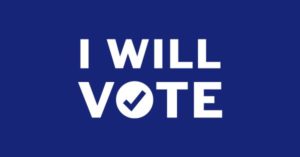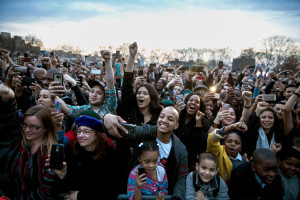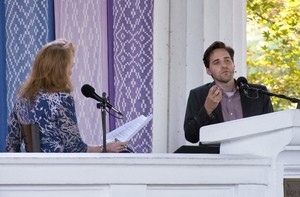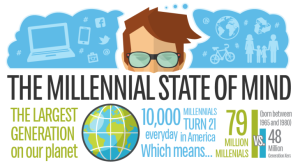Millennials
Faith in Youth
March 2, 2020The world of our time is in confusion. It is reaching the peak of the greatest crisis in history. Never before has there been such a total upheaval of the whole human race. Tremendous forces are at work: spiritual, sociological, economic, technological and, least of all, political. Mankind stands on the brink of a new barbarism, yet at the same time there remain possibilities for an unexpected and almost unbelievable solution, the creation of a new world and a new civilization, the like of which has never been seen. We are face to face with Antichrist, or the Millennium (Millennials!), no one knows which.
-Thomas Merton, The Silent Life, 1957
11.6.18
September 11, 2018To young people:
“You need to vote, because our democracy depends on it.”
-President Barack Obama
We organize, and run.
November 23, 2016RUNNING FOR OFFICE
P.G. Sittenfeld
Policy.Mic
The will of millennials did not prevail this election cycle, as seen in the map that went viral showing that if millennials alone decided the outcome, Hillary would have won.
So the question now is: What can we do about it?
One of the biggest and boldest actions is for more millennials to actually run for office.
- Know why you’re running
- Build your own team
- Hone your message
- Constantly seek feedback, including from people who disagree with you
- Yes, money matters
- Prepare for it to be all-consuming
- Getting the media’s attention isn’t easy
- Credibility is transferable
- You have to really, truly believe you will win
- Don’t let people discourage you
‘Freedom. And community.’
August 24, 2016‘Millennials are oriented around neighborhood hospitality, rather than national identity or the borderless digital world. […] I get the sense a lot of people are actually about to make the break and immerse themselves in demanding local community movements. […] If millennials are heading anywhere, it seems to be in the direction of community.’
Full article:
“In 18th-century America, colonial society and Native American society sat side by side. The former was buddingly commercial; the latter was communal and tribal. As time went by, the settlers from Europe noticed something: No Indians were defecting to join colonial society, but many whites were defecting to live in the Native American one.
This struck them as strange. Colonial society was richer and more advanced. And yet people were voting with their feet the other way.
The colonials occasionally tried to welcome Native American children into their midst, but they couldn’t persuade them to stay. Benjamin Franklin observed the phenomenon in 1753, writing, “When an Indian child has been brought up among us, taught our language and habituated to our customs, yet if he goes to see his relations and make one Indian ramble with them, there is no persuading him ever to return.”
During the wars with the Indians, many European settlers were taken prisoner and held within Indian tribes. After a while, they had plenty of chances to escape and return, and yet they did not. In fact, when they were “rescued,” they fled and hid from their rescuers.
Sometimes the Indians tried to forcibly return the colonials in a prisoner swap, and still the colonials refused to go. In one case, the Shawanese Indians were compelled to tie up some European women in order to ship them back. After they were returned, the women escaped the colonial towns and ran back to the Indians.
Even as late as 1782, the pattern was still going strong. Hector de Crèvecoeur wrote, “Thousands of Europeans are Indians, and we have no examples of even one of those aborigines having from choice become European.”
I first read about this history several months ago in Sebastian Junger’s excellent book “Tribe.” It has haunted me since. It raises the possibility that our culture is built on some fundamental error about what makes people happy and fulfilled.
The native cultures were more communal. As Junger writes, “They would have practiced extremely close and involved child care. And they would have done almost everything in the company of others. They would have almost never been alone.
If colonial culture was relatively atomized, imagine American culture of today. As we’ve gotten richer, we’ve used wealth to buy space: bigger homes, bigger yards, separate bedrooms, private cars, autonomous lifestyles. Each individual choice makes sense, but the overall atomizing trajectory sometimes seems to backfire. According to the World Health Organization, people in wealthy countries suffer depression by as much as eight times the rate as people in poor countries.
There might be a Great Affluence Fallacy going on — we want privacy in individual instances, but often this makes life generally worse.
Every generation faces the challenge of how to reconcile freedom and community — “On the Road” versus “It’s a Wonderful Life.” But I’m not sure any generation has faced it as acutely as millennials.
In the great American tradition, millennials would like to have their cake and eat it, too. A few years ago, Macklemore and Ryan Lewis came out with a song called “Can’t Hold Us,” which contained the couplet: “We came here to live life like nobody was watching/I got my city right behind me, if I fall, they got me.” In the first line they want complete autonomy; in the second, complete community.
But, of course, you can’t really have both in pure form. If millennials are heading anywhere, it seems to be in the direction of community. Politically, millennials have been drawn to the class solidarity of the Bernie Sanders campaign. Hillary Clinton — secretive and a wall-builder — is the quintessence of boomer autonomy. She has trouble with younger voters.
Professionally, millennials are famous for bringing their whole self to work: turning the office into a source of friendships, meaning and social occasions.
I’m meeting more millennials who embrace the mentality expressed in the book “The Abundant Community,” by John McKnight and Peter Block. The authors are notably hostile to consumerism.
They are anti-institutional and anti-systems. “Our institutions can offer only service — not care — for care is the freely given commitment from the heart of one to another,” they write.
Millennials are oriented around neighborhood hospitality, rather than national identity or the borderless digital world. “A neighborhood is the place where you live and sleep.” How many of your physical neighbors know your name?
Maybe we’re on the cusp of some great cracking. Instead of just paying lip service to community while living for autonomy, I get the sense a lot of people are actually about to make the break and immerse themselves in demanding local community movements. It wouldn’t surprise me if the big change in the coming decades were this: an end to the apotheosis of freedom; more people making the modern equivalent of the Native American leap.”
-David Brooks
Bernie supporters at a rally in the Bronx, NY. (NY TIMES)
The wisdom of millennials.
March 27, 2016‘I hope that we can learn to see that dignity that’s in all of us, that divinity that comes when we organize together, when we meet each other face-to-face, and even sometimes through a chat room — how to tell those stories. How to hold up those moments where we find our agency and our ability to make a change. That’s what I’m looking for. And that’s what I hope, more than anything, to contribute.
[…]
Could the growing number of non-religious young people be a force for the renewal of spiritual traditions? How might the internet of the future look utterly different from the internet of now? And what did the Occupy movement really tap into, and what has it become below the radar? With Nathan Schneider, we explore the wisdom of a millennial generation public intellectual on the emerging fabric of human identity.’
—
is a scholar-in-residence of media studies at the University of Colorado Boulder. He is the author of God in Proof: The Story of a Search from the Ancients to the Internet and Thank You, Anarchy: Notes from the Occupy Apocalypse. He is a regular columnist for Vice magazine and America, the national Catholic weekly. He is currently co-editing a book on democratic business models for online platforms.
On Being:
http://www.onbeing.org/program/nathan-schneider-the-wisdom-of-millennials/6911
The Millennials.
September 16, 2015NPR
The ‘Nonjudgmental’ Generation: Courting the Millennial Vote
http://www.npr.org/2015/09/16/440914119/the-nonjudgmental-generation-courting-the-millennial-vote
